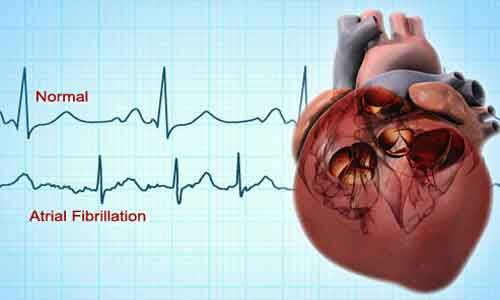- Home
- Medical news & Guidelines
- Anesthesiology
- Cardiology and CTVS
- Critical Care
- Dentistry
- Dermatology
- Diabetes and Endocrinology
- ENT
- Gastroenterology
- Medicine
- Nephrology
- Neurology
- Obstretics-Gynaecology
- Oncology
- Ophthalmology
- Orthopaedics
- Pediatrics-Neonatology
- Psychiatry
- Pulmonology
- Radiology
- Surgery
- Urology
- Laboratory Medicine
- Diet
- Nursing
- Paramedical
- Physiotherapy
- Health news
- Fact Check
- Bone Health Fact Check
- Brain Health Fact Check
- Cancer Related Fact Check
- Child Care Fact Check
- Dental and oral health fact check
- Diabetes and metabolic health fact check
- Diet and Nutrition Fact Check
- Eye and ENT Care Fact Check
- Fitness fact check
- Gut health fact check
- Heart health fact check
- Kidney health fact check
- Medical education fact check
- Men's health fact check
- Respiratory fact check
- Skin and hair care fact check
- Vaccine and Immunization fact check
- Women's health fact check
- AYUSH
- State News
- Andaman and Nicobar Islands
- Andhra Pradesh
- Arunachal Pradesh
- Assam
- Bihar
- Chandigarh
- Chattisgarh
- Dadra and Nagar Haveli
- Daman and Diu
- Delhi
- Goa
- Gujarat
- Haryana
- Himachal Pradesh
- Jammu & Kashmir
- Jharkhand
- Karnataka
- Kerala
- Ladakh
- Lakshadweep
- Madhya Pradesh
- Maharashtra
- Manipur
- Meghalaya
- Mizoram
- Nagaland
- Odisha
- Puducherry
- Punjab
- Rajasthan
- Sikkim
- Tamil Nadu
- Telangana
- Tripura
- Uttar Pradesh
- Uttrakhand
- West Bengal
- Medical Education
- Industry
High doses of Levothyroxine increase atrial fibrillation risk in elderly, finds study

Canada: The administration of levothyroxine at a dose above 0.075 mg/day in older adults may increase the risk of atrial fibrillation (AF) compared to exposure to a lower dose, suggests a recent study in the American Heart Journal.
Due to the lack of data pertaining to the effect of levothyroxine dose on the occurrence of AF are lacking, particularly in the older population, Inna Y.Gong, Department of Medicine, University of Toronto, Canada, and colleagues determine the effect of cumulative levothyroxine exposure on AF and ischemic stroke risk in older adults.
For the purpose, the researchers conducted a population-based observational study using healthcare databases from Ontario, Canada. 189,672 older adults aged ≥66 years (mean age 82 years; 72% women) without a history of AF who filled at least one levothyroxine prescription between April 1st, 2007, and March 31st, 2016 were included.
Cases were defined as cohort members who had incident AF (emergency room visit or hospitalization) between the date of first levothyroxine prescription and December 31st, 2017. Cases were matched with up to five controls without AF on the same index date. The index date was the date of AF
The secondary outcome was ischemic stroke. Cumulative levothyroxine exposure was estimated based on total milligrams (mg) of levothyroxine dispensed in the year prior to the index date.
Key findings of the study include:
- 16.1% had an episode of AF.
- Compared to low levothyroxine exposure, high and medium exposure was associated with significantly increased risk of AF after adjustment for covariates (adjusted odds ratio, aOR 1.29, aOR 1.08 respectively).
- No association was observed between levothyroxine exposure and ischemic stroke.
- Compared with current levothyroxine use, older adults with remote levothyroxine use had lower risks of AF (aOR 0.56) and ischemic stroke (aOR 0.61).
"Among older persons treated with levothyroxine, levothyroxine at doses above 0.075 mg/day is associated with an increased risk of AF compared to lower exposure," concluded the authors.
"Levothyroxine dose and risk of atrial fibrillation: a nested case-control study," is published in the American Heart Journal.
DOI: https://www.sciencedirect.com/science/article/abs/pii/S0002870320302726
Dr Kamal Kant Kohli-MBBS, DTCD- a chest specialist with more than 30 years of practice and a flair for writing clinical articles, Dr Kamal Kant Kohli joined Medical Dialogues as a Chief Editor of Medical News. Besides writing articles, as an editor, he proofreads and verifies all the medical content published on Medical Dialogues including those coming from journals, studies,medical conferences,guidelines etc. Email: drkohli@medicaldialogues.in. Contact no. 011-43720751


